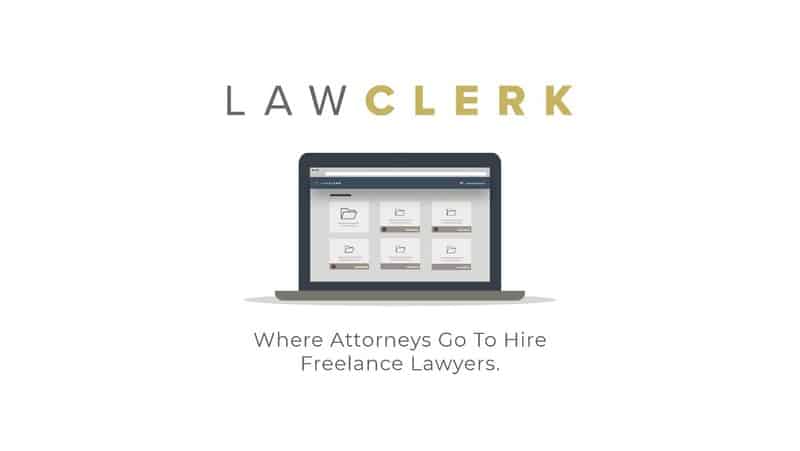“By encouraging the use of lower cost paralegals rather than attorneys wherever possible, permitting market-rate billing of paralegal hours encourages cost-effective delivery of legal services and, by reducing the spiraling cost of civil rights litigation, furthers the policies underlying civil rights statutes.” – U.S. Supreme Court26
For nearly thirty years, the U.S. Supreme Court has consistently recognized that paralegals, law clerks, and other paraprofessionals’ services may be billed (and reimbursed by the prevailing party) at “prevailing market rates” verses at the rate actually paid to the paraprofessional.”27
In Missouri v, Jenkins, the U.S. Supreme Court addressed whether paralegal and other paraprofessional services may be awarded at market rates under 42 U.S.C. § 1988. Specifically, the State of Missouri argued that paraprofessional time may only be awarded as a cost, meaning that attorneys could only recover for the amount actually paid to the paraprofessional and could not make any profit by using paraprofessional services. The U.S. Supreme Court unequivocally rejected Missouri’s argument finding that paraprofessional time may be awarded at prevailing market rates. In reaching its decision, the Court noted the practical reality that “[a]ll else being equal, the hourly fee charged by an attorney whose rates include paralegal work in her hourly fee, or who bills separately for the work of paralegals at cost, will be higher than the hourly fee charged by an attorney competing in the same market who bills separately for the work of paralegals at ‘market rates.’”28
The Court also rejected Missouri’s contention that awarding compensation for paraprofessionals at rates above cost would result in a windfall for the prevailing attorney. “Neither petitioner nor anyone else, to our knowledge, has ever suggested that the hourly rate applied to the work of an associate attorney in a law firm creates a windfall for the firm’s partners or is otherwise improper under § 1988, merely because it exceeds the cost of the attorney’s services. If the fees are consistent with market rates and practices, the ‘windfall’ argument has no more force with regard to paralegals than it does for associates.”29
In 2008, the U.S. Supreme Court revisited the issue addressing whether the Equal Access to Justice Act, 5 U.S.C. § 504(a)(l), and 28 U.S.C. § 2412(d)(1)(A) allows a prevailing party in a case brought by or against the government to recover fees for paralegal services at market rates or only at the attorney’s cost for such paraprofessional services.30 In determining that paralegal services may be recovered at prevailing market rates, the Court rejected the contention that the statutes’ varying use of the words “expenses” and “fees” changed the analysis. The Court explained that even if it agreed that the statutes referred to reasonable costs, one does not determine the reasonable cost of an engineering report from the perspective of what the engineering firm pays the engineer preparing the report. Similarly, one does not determine the reasonable cost of paraprofessional services from the perspective of what the attorney pays the paraprofessional.
Rather, the reasonable cost is determined by what expense is incurred by the client.31 “It seems more plausible that Congress intended all ‘fees and other expenses’ to be recoverable at the litigant’s ‘reasonable cost,’ subject to the proviso that ‘reasonable cost’ would be deemed to be ‘prevailing market rates’ when such rates could be determined.”32Thus, whether the term “fees,” “expenses,” or “costs” is utilized in connection with paraprofessionals services, the analysis remains the same –paraprofessional services may be reimbursed at prevailing market rates not the cost paid by the attorney to the paraprofessional.
The Model Rules and related ethics opinions regarding how contract lawyers’ fees may be billed are consistent with the U.S. Supreme Court’s holdings in Richlin and Jenkins and further establish that paraprofessional services of freelance lawyers may be billed at prevailing market rates, irrespective of whether the freelance lawyers are working as lawyers or in a paraprofessional capacity. Model Rule 1.5, titled “Fees,” provides in pertinent part:
(a) A lawyer shall not make an agreement for, charge, or collect an unreasonable fee or an unreasonable amount for expenses. The factors to be considered in determining the reasonableness of a fee include the following:
(1) the time and labor required, the novelty and difficulty of the questions involved, and the skill requisite to perform the legal service properly;
(2) the likelihood, if apparent to the client, that the acceptance of the particular employment will preclude other employment by the lawyer;
(3) the fee customarily charged in the locality for similar legal services;
(4) the amount involved and the results obtained;
(5) the time limitations imposed by the client or by the circumstances;
(6) the nature and length of the professional relationship with the client;
(7) the experience, reputation, and ability of the lawyer or lawyers performing the services; and
(8) whether the fee is fixed or contingent.
(b) The scope of the representation and the basis or rate of the fee and expenses for which the client will be responsible shall be communicated to the client, preferably in writing, before or within a reasonable time after commencing the representation, except when the lawyer will charge a regularly represented client on the same basis or rate. Any changes in the basis or rate of the fee or expenses shall also be communicated to the client.
The ABA Standing Committee on Ethics and Professional Responsibility has given further guidance in its Formal Opinion 93-379, stating:
The determination of a proper fee requires consideration of the interests of both client and lawyer. A lawyer should not charge more than a reasonable fee, for excessive cost of legal service would deter laymen from utilizing the legal system in protection of their rights. Furthermore, an excessive charge abuses the professional relationship between lawyer and client. On the other hand, adequate compensation is necessary in order to enable the lawyer to serve his client effectively and to preserve the integrity and independence of the profession.[33]
In its Formal Opinion 00-420, the ABA Standing Committee on Ethics and Professional Responsibility directly addressed the question of whether contract lawyers’ services must be billed to the client at the rate paid to the contract lawyer or at prevailing market rates.34 The answer – yes, attorneys may bill the services of contract lawyers to their clients at prevailing market rates as long as the rates satisfy Model Rule 1.5(a)’s reasonableness requirement.
Formal Opinion 00-420 concludes:
Subject to the Rule 1.5(a) mandate that ‘a lawyers fee shall be reasonable,’ a lawyer may, under the Model Rules, add a surcharge on amounts paid to a contract lawyer when services provided by the contract lawyer are billed as legal services. This is true whether the use and role of the contract lawyer are or are not disclosed to the client. The addition of a surcharge above cost does not require disclosure to the client in this circumstance, even when communication about fees is required under Rule 1.5(b). If the costs associated with contracting counsel’s services are billed as an expense, they should not be greater than the actual cost incurred, plus those costs that are associated directly with the provision of services, unless there has been a specific agreement with the client otherwise.
In a 2008 opinion, the ABA Standing Committee on Ethics and Professional Responsibility affirmed its conclusion that contract lawyers may be billed to clients at prevailing market rates instead of the rate paid to the contract lawyer as long as the rate satisfies the reasonableness requirement of Model Rule 1.5.35
In Formal Opinion No. 00-420, we concluded that a law firm that engaged a contract lawyer could add a surcharge to the cost paid by the billing lawyer provided the total charge represented a reasonable fee for the services provided to the client. This is not substantively different from the manner in which a conventional law firm bills for the services of its lawyers. The firm pays a lawyer a salary, provides him with employment benefits, incurs office space and other overhead costs to support him, and also earns a profit from his services; the client generally is not informed of the details of the financial relationship between the law firm and the lawyer. Likewise, the lawyer is not obligated to inform the client how much the firm is paying a contract lawyer; the restraint is the overarching requirement that the fee charged for the services not be unreasonable. If the firm decides to pass those costs through to the client as a disbursement, however, no markup is permitted. In the absence of an agreement with the client authorizing a greater charge, the lawyer may bill the client only its actual cost plus a reasonable allocation of associated overhead, such as the amount the lawyer spent on any office space, support staff, equipment, and supplies for the individuals under contract. The analysis is no different for other outsourced legal services, except that the overhead costs associated with the provision of such services may be minimal or nonexistent if and to the extent that the outsourced work is performed off-site without the need for infrastructural support.
Thus, the U.S. Supreme Court, the Model Rules, and the ABA Standing Committee on Ethics and Professional Responsibility have confirmed that attorneys can bill their clients for freelance lawyers’ services, irrespective of whether the lawyer is acting in a paraprofessional capacity, as long as the rate is a reasonable fee consistent with prevailing market rates and disclosed to the client.














